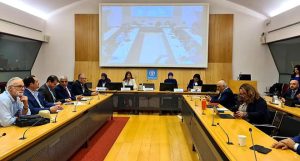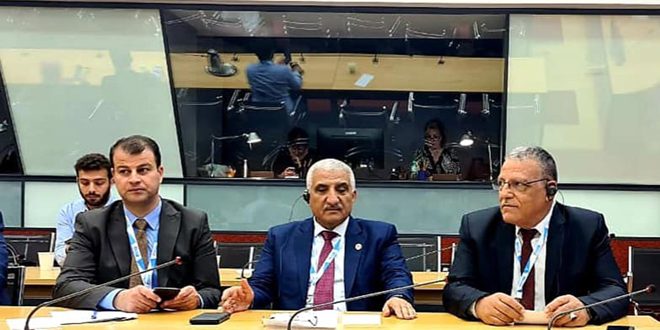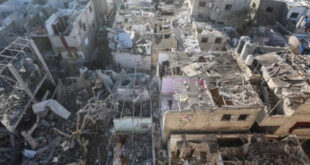Rome, SANA- Minister of Agriculture and Agrarian Reform, Mohamed Hassan Qatana underlined the importance of expanding the scientific and applied research and benefiting from study centers to avoid severe environmental, social and economic crises that we are facing.
Speaking at the UN Food Systems Summit that is being held in the Italian capital, Rome, Qatana pointed out the magnitude of the threats to food security and the sustainability of resources as demand for food grows.
Qatana stressed the need for adopting rapid measures to transform agricultural and food systems towards sustainable production and consumption patterns to reach comprehensive economic growth and to support countries suffering from crises.
Qatna noted that Syria, after the challenges it faced due to terrorism and the blockade, is looking forward to cooperating with countries, which truly believe and work for human rights and security, and with international governmental and non-governmental organizations to implement early recovery and development programs in Syria.
Qatana underlined that Syria is working to develop a comprehensive and coordinated approach to transform agricultural and food systems into more efficient, comprehensive, flexible, and sustainable systems, in cooperation with the FAO office in Damascus, in order to build an integrated strategy to transform agricultural and food systems in Syria.
Minister Qatna stressed the need to identify opportunities and unify Arab efforts and joint Arab action towards transforming food systems in fragile environments, and the need to increase investments and provide financing for such projects in countries suffering from crises, including Syria.
He pointed out to the role of the Arab League and joint Arab action organizations in this regard and the importance of inter-Arab cooperation in this field.
On the sidelines of the summit, Minister Qatna also met the Regional Director of the International Fund for Agricultural Development (IFAD), Dina Saleh, and discussed with her aspects of cooperation in the field of developing livestock and implementing new development projects in Syria.
In turn, the Regional Director reviewed the difficulties that the (IFAD) is facing in providing the necessary funding to implement wider projects in Syria.
She noted that the (IFAD) will constantly seek to provide the necessary funding to implement these important projects, which represent national priorities for Syria and at the same time are in line with the principles of work in the (IFAD).
She also drew attention that the (IFAD) has submitted proposals to some donors and is still awaiting responses from them.
At the end of the meeting, Minister Qatana invited the regional director of the (IFAD) to visit Damascus and discuss prospects for cooperation in the agricultural fields in depth, and work on implementing the proposals that were put forward.
Nisreen Othman/Shaza Qreima
 Syrian Arab News Agency S A N A
Syrian Arab News Agency S A N A



